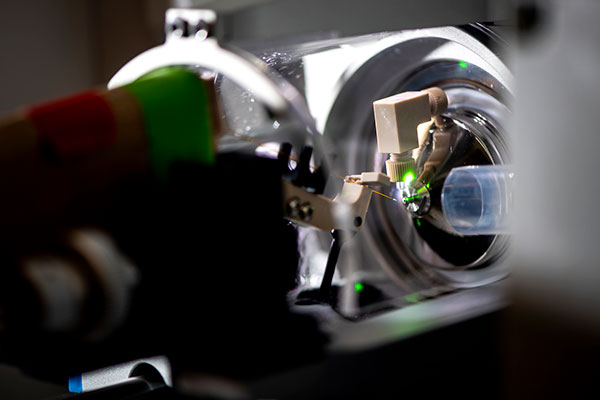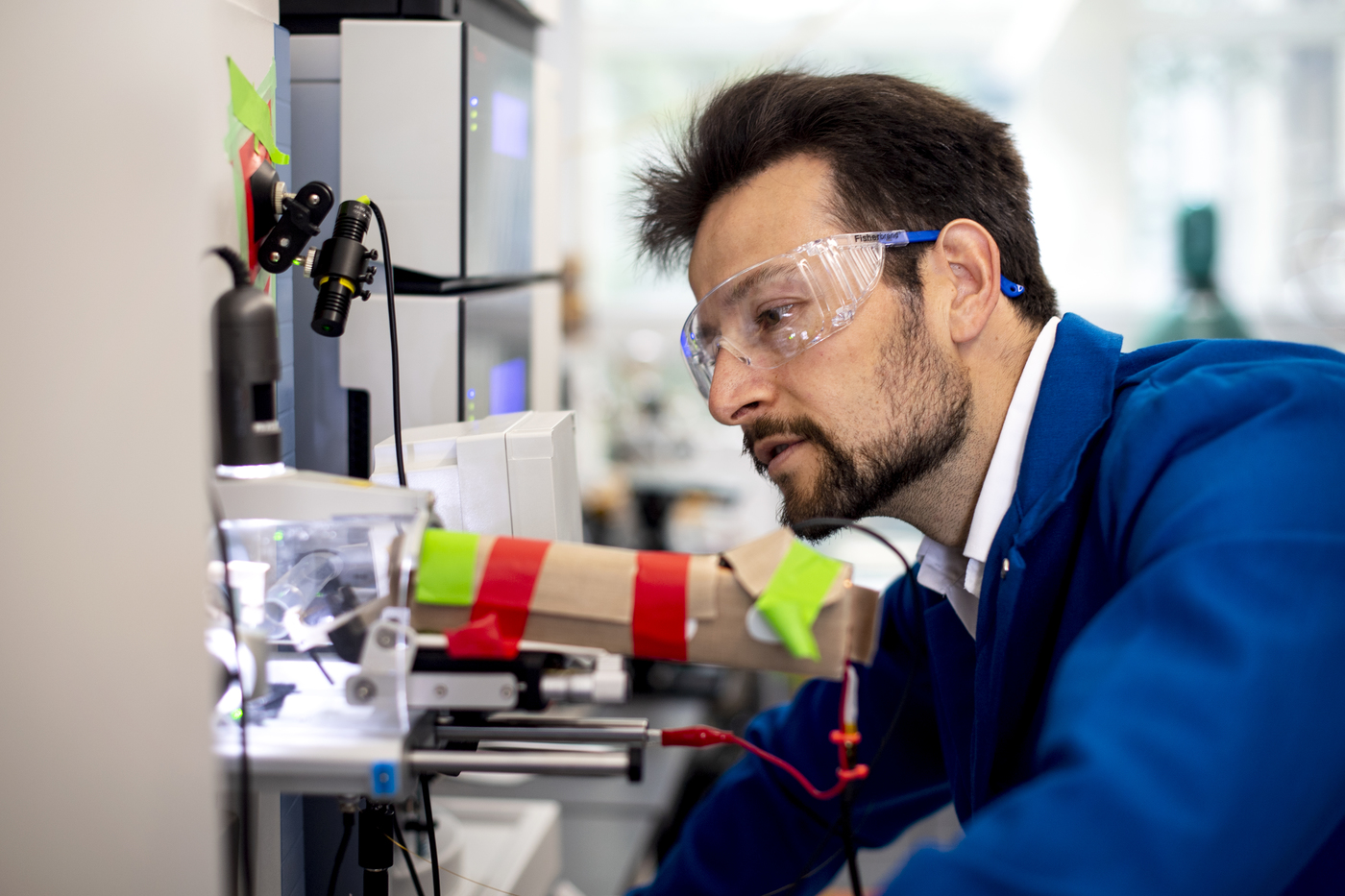Slowing the Progression of Alzheimer’s Disease

BioE Associate Professor Nikolai Slavov is investigating methods to slow the progression of Alzheimer’s, which is a specific form of dementia.
This article originally appeared on Northeastern Global News. It was published by Erin Kayata. Main Photo by Ruby Wallau/Northeastern University
What is the difference between Alzheimer’s and dementia?
Alzheimer’s and related forms of dementia are commonplace with the Centers for Disease Control and Prevention reporting that 5.8 million people in the United States live with these diseases. This number is expected to rise to 14 million by 2060.
But what is the difference between Alzheimer’s disease and dementia?

Nikolai Slavov works in his lab at the Mugar Life Sciences Building. Photo by Ruby Wallau/Northeastern University
“Dementia is a global term that just refers generally to loss of memory or cognition impairments that people observe,” said Becky Briesacher, associate professor in the Department of Pharmacy and Health Systems Sciences at Northeastern University.
“Alzheimer’s disease is a specific disease. (Dementia) is more sort of a syndrome, meaning it’s large. It encompasses a bunch of different features,” Briesacher added.
According to the Alzheimer’s Association, Alzheimer’s disease is the most common type of dementia, caused by the growth of plaques and tangles in the brain that lead to the death of neural pathways.
But dementia can also be caused by neurodegenerative diseases like Huntington’s disease and Parkinson’s disease. Dementia can also be prompted by conditions that lead to lack of blood flow and oxygen to the brain (vascular dementia) or nerve loss in the frontal lobe known as frontotemporal dementia.
“Every neurodegenerative disease can cause dementia,” said Nikolai Slavov, associate professor of bioengineering in the College of Engineering at Northeastern University. “The other diseases occur at a lower frequency and that’s why they’re less well known and talked about.”
With Alzheimer’s being the most common of these diseases, many might wonder: What can you do to prevent Alzheimer’s disease?
Unfortunately, there’s no simple answer. There are genetic risk factors at play, Slavov said, as well as ones affected by lifestyle choices. Science has not determined which outweighs the other.
There’s a number of factors associated with a lower risk of getting dementia, such as higher education levels and eating a Mediterranean diet, which focuses on whole grains, fruits, vegetables and healthy fats.
Read full story at Northeastern Global News